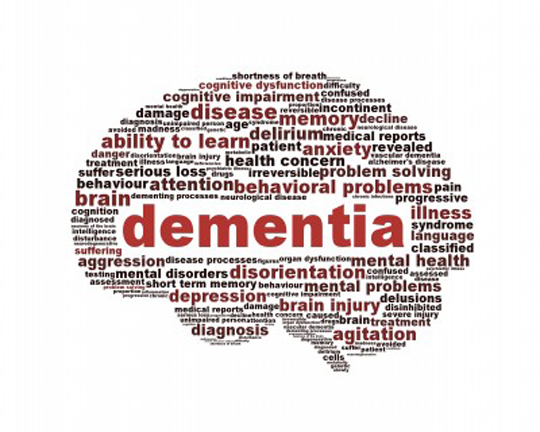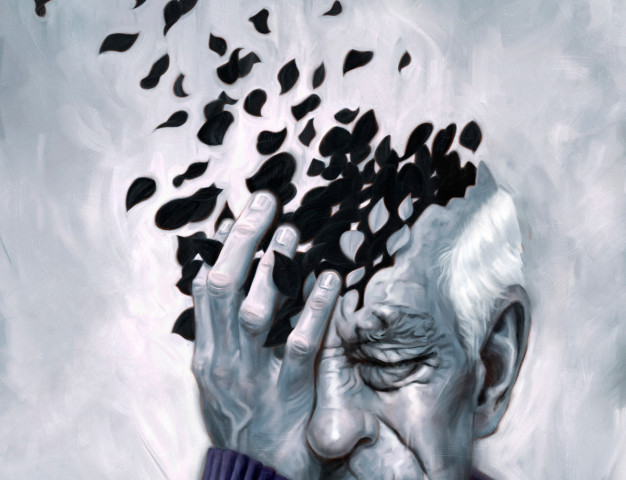Dementia: Stages, Signs and Causes
What is Dementia?
Stages of Dementia
As you already know, dementia is neurodegenerative disease. This implies the death of brain cells or the destruction of these for that matter. This condition comes in an array of forms but it is generally produced by the cluster of a certain protein, which inhibits the proper development of other brain cells. When these clusters begin spreading they initiate a process that often involves the loss of memory first and then it is followed by language comprehension and development.
All forms of dementia develop in stages. These stages differ in number from one medical practice to the next but they are generally five or three. Others would go on to say there are seven stages. Nonetheless it is almost norm to say that there are five stages.
The first stage of dementia or stage 0 is practically imperceptible. The ailed individual can function perfectly in their homes and work areas. The progress of the disease in this stage is invisible because it is actually taking place in the brain and can only be diagnosed via MRI scans and such. Within this stage it is best to begin available treatment. These treatments will not cure it but will slow it down and aid the person afflicted by dementia to live a more dignified rest of their life.
 The second stage of dementia or stage 0.5 has mild symptoms that can be taken note of which include: trouble remembering certain words as they speak and trouble keeping track of certain things but remembering where or what they were later. Dementia still won’t affect the person’s ability to act in their work environments and their homes.
The second stage of dementia or stage 0.5 has mild symptoms that can be taken note of which include: trouble remembering certain words as they speak and trouble keeping track of certain things but remembering where or what they were later. Dementia still won’t affect the person’s ability to act in their work environments and their homes.
The third stage of dementia is 1, it begins presenting noticeable problems with memory and placing certain things in unusual places. Loss of sense of direction and the geographical location of things like the restroom or the bedroom are also part of this stage of dementia.
At this point the ability to maintain a job is reduced to null and some daily activities will be neglected due to forgetfulness. The person in question will still be able to care for themselves and their hygiene but it is best if they have a person helping them and tending to them as they do these activities.
During the fourth stage of dementia also known as stage two, patients confront mood swings severe impairment in their short-term memory. This may lead to attitudes that are not socially appropriate and by this stage the person’s ability to take care of their own hygiene is nearly non-existent for this matter they will need constant surveillance and care.
In The fifth and final stage of dementia the patient will have coursed through the destruction of his or her frontal lobe in a way that they will begin forgetting their family members and long term memories will be muddled if not destroyed. Incontinence may be present and they won’t be able to perform simple tasks like eating or reading. The impairment may also reach the hippocampus and other regions of the brain involved with language and motor sensory input and output. Due to this vocabulary will be reduced and their ability to use their fine motor skills will be reduced to shambles.
Signs Of Dementia
Dementia presents symptoms and signs that are easily interchangeable with each other. As this form of degenerative forgetfulness progresses the symptoms are not only felt by the afflicted person in question but also seen by the people around them, loved ones and doctors. Here is a list of the fifteen signs that can be spotted of the presence of dementia:
First and foremost patients with this disease tend show afflictions related to memory. This can be seen in the loss of words or ideas during a conversation with frequency, the misplacement of objects like a bottle of cream in the fridge and the impairment of the short-term memory in such a way that they will not be able to retain new names. Dementia regularly affects memory first as its first location of degeneration is usually the frontal lobe.
 This affliction to the frontal lobe can also bring about another major impairment in the lives of people with dementia. Think about the reason why children are not handed a car and why it is kind of sketchy to leave the car to a teen. It is the same reason why the legal drinking age is 21. People should be allowed to drink or drive after they’re 25 actually, because their frontal lobe is not fully developed until such said age. This region of the brain is in charge of making the sane and healthy reasoning decisions that will lead to a better longevity of a person’s life.
This affliction to the frontal lobe can also bring about another major impairment in the lives of people with dementia. Think about the reason why children are not handed a car and why it is kind of sketchy to leave the car to a teen. It is the same reason why the legal drinking age is 21. People should be allowed to drink or drive after they’re 25 actually, because their frontal lobe is not fully developed until such said age. This region of the brain is in charge of making the sane and healthy reasoning decisions that will lead to a better longevity of a person’s life.
In the case of dementia patients, the irrational actions they incur in aren’t their fault. The progressive consumption of the part of their brain that helps them make rational decisions will inevitably cause them to make irrational decisions. They’ll react in an unusual manner to their boss’sremarks, which might make them lose their jobs or paying an excessive amount for a cup of coffee.
Another inexorable ailment of the memory dementia patients will have to deal with will be locational. They’ll forget where certain places are or won’t be able to follow immediate directions to a place. For this matter a caregiver is essential for the well being of the patient as they may have problems of incontinence as they may forget where the bathroom is located.
Causes of Dementia
Dementia is, as you already know, the destruction of brain cells due the cluster of plaques in the brain. Now, one of the great questions that arise in the minds of those affected by this disease is: What causes it? To some the answer to this question is simple to others it is hidden behind a myriad of shady answers.
To those people that are affected by vascular dementia (it must be diagnosed on time) the reason is problems with their vascular system. So if you smoke, drink or have extremely dangerous levels of cholesterol and you wish to live a little longer then you should consider your living habits.
To those affected by the form of dementia known as Huntington’s disease will know that their form of disease is the result of their genes and that their ancestors have had it before. This is also applicable to other forms of this problem that can be passed down. It is actually proven that people with onset forms of dementia like Alzheimer’s tend to develop them because it was genetically passed on to them. Many others attribute their mental problem to the production of Lewy bodies and the destruction of these may cause in their brains and their gray matter specifically.
Other causes of dementia as I mentioned before are shrouded in the darkness of the things we have yet to shed light on scientifically. Many things have been attributed to cause mental problem but it has not been scientifically proven yet that they are actually the reason behind the person’s slow demise. Some of the other not so mentioned causes are: the lack of production of the thyroids in the thyroid glands, the lack of vitamin B in the diet of the person, abuse of alcohol for prolonged periods of time and head injuries may all instill dementia in an individual.
How should we care for a Dementia patients?
Images courtesy of: http://www.imagekb.com
Videos courtesy of: youtube.com



